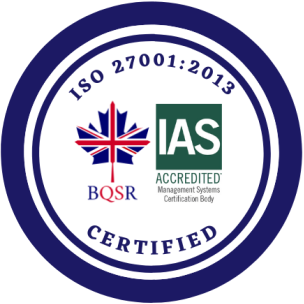2020-2021 changed the shape of our workplaces forever.
Now that another year is going by, some of us can start building conclusions on whether we actually miss our office chats at the coffee machine, or if working from home is more practical.
What we are sure about though, is that companies worldwide had two years to adapt to the new normality.
Currently companies need to get their systems and protocols updated to sync with a new geo-dislocated reality.
For most of the planet’s population this is good news. We no longer need to commute for hours or pay absurd-high leases to live in large cities where our jobs are.
We can just work from home.
This is not good news if you are working in HR though.
Candidates become more demanding due to this, and have now the luxury to be able to choose among hundreds of new jobs.
A large portion of the workforce has also decided to quit their 9-5 office jobs, move somewhere else and work remotely, as long as they have a high-speed internet connection.
Read more: The Great Resignation: This is how your recruitment strategies must adapt to this change.
So why is it, that in 2022, international recruiting is still so complicated?
The world has changed, but local bureaucracies remained the same.
Pretty much unchanged since the last century (one could argue).
Global companies still need to navigate language differences, currency and bank distinctions from country to country and they must offer equal contract conditions to valuable employees, whilst not having yet a company established in that country where they need to recruit in.
To add to these challenges, global companies also need to handle international payroll processing, which involves navigating complex tax and legal regulations across different countries, as well as ensuring compliance with local labor laws and regulations.
All of this turns a normal recruitment process into a nightmare experience that can easily transform into a 6+ months project.
Regional cultural differences are also a major reason why few companies are seeking a cross-border expansion.
To use a very broad and stereotypical generalization, if for instance a Brazilian company is looking to hire someone in Norway, perhaps during their interview process they might consider most Norwegian candidates too introvert or not enough outspoken compared to their own national cultural standards.
Local cultural biases are an important factor that regional headhunting agencies can assist navigating.
Read more: 5 main challenges faced during diversity hiring: How can recruiters mitigate them?
Often, salary expectations can also differ quite significantly from country to country.
The same exact position, in another nation, with a different currency may have an entirely different salary range that could shock recruiters or HR directors at first.
National unemployment levels also influence these ranges, as a country with 2% unemployment obviously will have candidates demanding higher salaries than a country with 20% unemployment.
It is quite clear after these initial observations, that the local details and differences foreign companies need to absorb, analyze and understand are quite a few.
Hiring local headhunting and executive search experts or agencies to assist you during your international expansion efforts, can not only result in significant reduction in efforts, but also in reducing a timeline that can span anywhere between 4 to 8 months down to 6 weeks once you have local professionals assisting you.
Read more: Executive search 101: A powerful guide for recruiters.
One of the most common difficulties companies need to address, is also the lack of employer branding they face in a new country.
A skilled executive might have the luxury to choose where they can work. They have the liberty to pick among well-known global brands and well-established national enterprises.
So, why should they decide to choose your client instead?
You are just landing in the nation (that you’ve chosen) with relative risks of your operations getting cancelled if the P&L doesn’t look right.
There are reasonable risks attached to shift careers in order to start a new venture.
Most of the times a respected recruitment agency may be able to attract valuable candidates (thanks to its local reputation) enabling you to reassure future prospects, that your company is worth trusting, or at least having a first meeting with.
Global population is rising, and with it new necessities, trends, and jobs are being created.
But this constant thirst for highly-qualified talent, motivated workers that bring in new ideas, manage your team and grow your profits often clash with the harsh realities of complicated international recruiting.
HR directors and CEOs now need to co-exist with unpredictable external factors
(pandemics, wars, economic uncertainties, etc.) that very often translate into tangible and concrete worries in the candidate market.
InHunt World is an international network of local Headhunting companies that is present in 46 countries across the world.
With over 72 offices and more than 640 senior headhunters in various industries, a solution like InHunt World may possibly assist you in defining if the salary
ranges you are contemplating are realistic.
It can also assist you in crafting job contracts in various languages, navigate legal requirements that may vary according to your specific industry and strategic needs.
Payroll and employee record services can also be provided, to speed up your onboading and employment processes.
You can reach InHunt World via email at info@inhuntworld.com.



